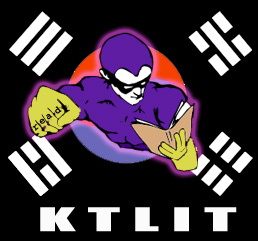 I found a combination of thoughts from Professor Kim Seong-kon of SNU quite intriguing (for out-of-country folks, you should know that Korea University education is quite hierarchical and SNU is considered the cream of the crop, and thus what their professors say is either influential or represents considered wisdom). He was discussing the laudable LTI Korea/Dalkey Archives publication collaboration of 25 Korean works:
I found a combination of thoughts from Professor Kim Seong-kon of SNU quite intriguing (for out-of-country folks, you should know that Korea University education is quite hierarchical and SNU is considered the cream of the crop, and thus what their professors say is either influential or represents considered wisdom). He was discussing the laudable LTI Korea/Dalkey Archives publication collaboration of 25 Korean works:
Kim said English-language readers are no longer interested in reading about the “ideological account of Korea’s 1980s,” nor do they want to read about personal novels written by many female writers in the 1990s.
“Except for works of author Kim Young-ha and a few others, Korean literature hasn’t changed much in terms of its topic and style since the post-colonial era,” Kim told The Korea Herald. “It’s hard to attract international readers with such themes and topics anymore.”
Professor Kim seems to be wildly conflating literary styles and eras that it would take a blender the size of Newt Gingrich’s ego to combine. Further, he seems to be deliberately slighting the anti-modernization (which is most certainly not the proper phrase to describe the fictive reactions to the price of development) fiction of the 80s as well as the wave of female writers who came to the fore in the 90s.
Certainly, regular readers of KTLIT have read me fulminating against repetitive translations from the pundan munhak era – these have no comfortable landing place in Western genres; perhaps the closest comparison might be holocaust literature. And these works also frequently feature characters with insufficient agency. But starting in the 1970s (Ch’oe In-ho’s The Boozer pops immediately to mind) stories began to feature characters and plots that might “make sense” to western readers and Kim’s conflation of the entire post-war era confuses me.
Additionally, much of the literature written about the time of the miracle on the Han is also generally applicable to any industrialized country. Finally, the work of female writers in the 90’s was often brilliant, subtle, and modern (I think of Ch’oe Yun, particularly).
It seems a rather blunt instrument of a quote, and I’m not sure that “avant-garde” literature can be expected to, by virtue of its form, have any more success in English than the forms the professor casually dismisses.
As always.. I have to admit that there may well be some subtleties to Kim’s phrases that do not survive translation – perhaps these phrases represent particular sub-genres of Korean fiction that would have specific meaning to Koreans about which I am too dense to determine. Still, it seems awfully dismissive.


